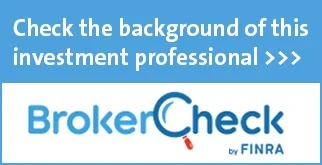COBRA CONTINUATION
What is COBRA Continuation Coverage?
Employees who obtain group health insurance through their employer can lose their coverage when their employment situation changes. Similarly, their families can also lose coverage if the employment or family situation changes. COBRA continuation coverage provides employees and families who are no longer eligible for group health insurance due to a qualifying event with temporary health insurance coverage.
The Consolidated Omnibus Budget Reconciliation Act, which was passed in 1986, contained health benefit provisions that are commonly called COBRA continuation coverage. These benefits extend group health insurance that would be terminated due to a qualifying event, ensuring that employees and their families aren’t without health coverage when they experience a qualifying event that would otherwise cancel their group health insurance benefits obtained through their employer.
What is Considered a Qualifying Event?
Several events that could affect an employee’s or family member’s health insurance are covered under COBRA. The list of qualifying events includes:
- Involuntary or voluntary termination for reasons besides gross misconduct
- Reductions in employee hours
- Legal separation and divorce
- Death of a covered employee
- A covered employee becoming eligible for Medicare
- A person losing dependent status under the group plan’s rules
Free Quotes!
How Long Does COBRA Coverage Last?
How long COBRA coverage lasts depends on what qualifying event triggered the coverage. If an employee is terminated or has their hours reduced, COBRA coverage can last for up to 18 months. For other events, it may last up to 36 months. In both cases, COBRA coverage typically begins on the day of the qualifying event, and it will be terminated early if a potential beneficiary doesn’t pay the coverage premiums.
What Businesses Must Provide COBRA Coverage?
Businesses that have at least 20 employees are typically required to provide COBRA coverage, and there are usually legal requirements to notify employees of COBRA coverage if it’s provided.
Who Pays COBRA Coverage Premiums?
COBRA coverage premiums are usually paid for by the person receiving the coverage (i.e. an employee, an employee’s family, a former spouse, or a former dependent). There are federal requirements about how much the premiums can be and how they can be billed, but the responsibility for paying for coverage typically falls to the employee or their family.

The Feingold Companies
Worcester Office
446 Main Street, Suite 1403
Worcester, MA 01608
Phone: (508) 831-9500
Fax: (508) 797-4030
New Lakeside & Dudley Insurance
446 Main Street, Suite 1403,
Worcester, MA 01608
Phone: (508) 943-0090
Send us a message

